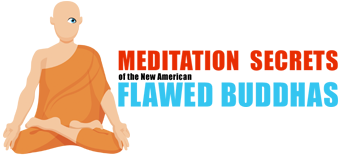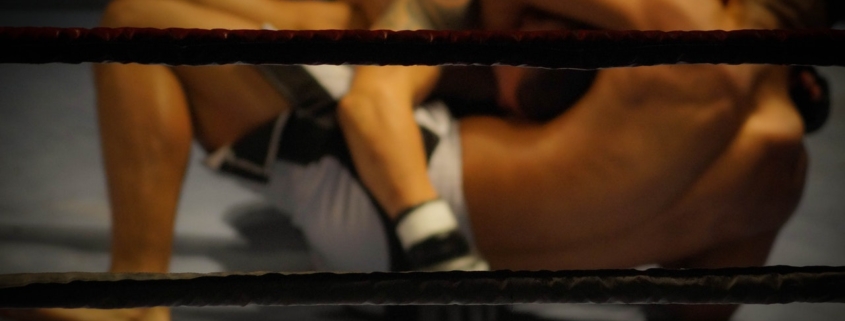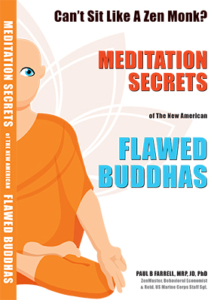Last Updated on March 9, 2021 by Paul Farrell, MRP, JD, PhD

The Martial Arts as Meditation! “The secret power is within!” The perfect “Action Meditation” for 6,000,000 high-energy Americans!
“’Your mind is not here,’ he said. I made no effort to deny he was right; students of martial arts soon learn that their teachers can see right through them. Standing there on the hard ground in Korea, I just bowed my head slightly and waited for Mr. Shin to continue. ‘What you are doing at the moment must be exactly what you are doing at the moment—and nothing else’ …
Mr. Shin’s advice, my first lesson in Zen, came back to me again and again during my years as a competitor.”
– Chuck Norris, The Secret Power Within
The entertainment industry has popularized the martial arts and captured the hearts and minds of Americans in recent years with films like The Matrix, Crouching Tiger, Hidden Dragon, and The Last Samurai. And before them, the works of Bruce Lee and David Carradine were cult classics. Yet, our fascination goes further back than the dazzling high-tech computer images in contemporary films, back centuries to ancient Japan and the Samurai warriors.
The Samurai tradition is often called the ‘Soul of Japan’ because it reflects the ancient spirit of the great warriors of the East in a way paralleling the tradition of the Knights of King Arthur’s Roundtable in Western culture. Around 1700, after five centuries of military rule, a Confucian scholar and military strategist, Shigesuke, wrote Bushido for Beginners, a code of honor as well as a training manual for new Samurais.
Today the principles in the Bushido Code are deeply engrained in the Japanese psyche and culture, extending far beyond the written rules, beyond military strategies, swordsmanship and death. The code speaks to the warrior’s entire way of life, to the duties of loyalty owed to family and shogun, service to society, to a way of life grounded in discipline, ethical conduct and personal honor. And fortunately, the code lives on today in the martial arts.
Martial Arts, Meditation and Finding True Zen
“Your mind is not here,” said Jae Chul Shin, Chuck Norris’ martial arts master, after noticing that Norris had been slacking off after earning his black belt. And with that gentle admonition, Norris, who later went on to become a world champion in the martial arts, got “his first lesson in Zen, without even knowing it.” Yes, Zen teachings often sneak up on us silently.
Focus on What You are Doing Right Now… Nothing Else!
In that one crucial moment as the master made his point, the student learned the power of the thousand-year tradition of the Code of the Bushido, the Way of the Samurai Warrior and all martial arts, the essence of Zen meditation and also the ultimate secret of success for contemporary business men and women – all wrapped into one profoundly simple principle:
“What you are doing at the moment must be exactly what you are doing at the moment – and nothing else. There is no control when the mind is absent. You must be one with yourself and with what you are doing. While doing something, you are doing it to the fullest. That is true Zen.”
True Zen? Yes, the martial arts, Zen and meditation are all one and the same for the literal translation of the word Zen is “meditation,” although historically and culturally it does not mean meditation in the usual sense. In fact, Westerners often see the Zen experience as a bunch of obscure and contradictory messages. And yet, Zen, like all of life, is profoundly simple.
The Zen Master Demands “Get to the Bottom Line”
“Although many people don’t realize it, Zen is not about monks meditating as much as it is about taking action and making decisive moves in the present,” says Norris. “There’s a certain impatience about Zen, an unwillingness to get lost in meandering arguments, a desire to cut quickly to the essential, or to ‘get to the bottom line’.”
Whether in the martial arts or in the business world, Zen is very, very simple to understand – get to the bottom line, and that means you: “Zen wants you to find yourself. Zen actively wants you to achieve happiness and be content with your life.” Ultimately then, as in all wisdom traditions throughout history, the goal is finding yourself.
And whether practicing the martial arts, or meditating, or getting to the bottom line in a business deal, the ball is forever being tossed back in your court because “one of the basic tenets of Zen is that it really has nothing to teach, nothing to say,” says Norris. “According to Zen the truth is obvious, or should be. The truth is nothing that can be taught … instead, you have to become aware of it on your own.” You are responsible.
Secret Power of Martial Arts Meditation is Crucial in Business
Although my experience is the martial arts is limited, I have been a student of Zen for over three decades as well as an observer of the power martial arts bring to a person’s life. Chuck Norris’ The Secret Power Within: Zen Solutions for Real Problems offers perhaps the single best explanation of the history, tradition and meaning of Zen and its role in the martial arts because it speaks directly to today’s business executives in their own language. In fact, Norris has been a great teacher in both arenas.
Here’s a hard-nosed no-nonsense action-oriented businessman who learned how to get to the bottom line both as a world-class martial arts champion and a major star of film and television, and also in the school of hard knocks where he had to rebuild a successful national franchise business following a partner’s embezzlement that nearly drove him into bankruptcy.
The martial arts are already widely practiced as active meditation for millions of Americans. It is great physical exercise, it sharpens the mind’s ability to focus, it does encourage a sense of well-being and reduce stress, plus the Zen philosophy is a perfect way to business success. And yes, you may also want to try Norris’ approach to passive meditation:
“There are very precise rules for meditation, but since not everyone has the time, or even the ability to perform them, they can be modified, even to the point where they are no longer related to the basic rules … it is the content of Zen meditation that matters, not the style or the trappings.”
Shut Out the World, Wake Up the Mind
In other words, you develop a style that fits you personally, rather than following the ritualistic format of some popular guru. In his case “the key to meditation begins with breath control. I first became acquainted with controlling my breathing when I was studying martial arts in Korea.”
Norris prefers starting before sunrise with a basic sitting meditation in his workout room. He faces a blank wall in the familiar cross-legged position. Nothing out of the ordinary. As the meditation progresses “in time you will ignore your breathing as it finds its own rhythm, at which point the outside world will be shut out and the inside world will begin to wake up. It is only then that I try to concentrate on a pleasant image or a phrase or problem. The answer to a problem begins with seeing that it is really in my mind, and not something external.”
Action Meditations are for High-Energy Business Execs
As you might well expect, Norris’ way of meditation is also a key asset for him in the business world: “As an actor-producer-writer of my own films and television series, I am often confronted with situations involving many people, some of them angry, belligerent, or defensive, and everyone looking to me for a solution to the problem. When that happens, I control my breathing, and it always restores calm, confidence, and strength. It allows me to bring my emotions and thoughts under control, so that I can focus on what’s at hand.”
Today many business men and women practice the martial arts along with zazen meditation. Norris tells their story: “For me the act of meditation is the act of clearing and calming my mind. I am not in a monastery. I am a contemporary man living a full life, and Zen is part of my life, not a replacement for it.”
In the final analysis, we learn that life itself is the ultimate meditation. If you are living a full life, you will find out who you are, something no one can do for you – not Zen, not meditation, not martial arts, not a great master, only you. They may help, but only you will ever know for sure, by living your life fully. So remember:
“What you are doing at the moment must be exactly what you are doing at the moment—and nothing else.”
About the Author
Dr. Farrell is a Behavioral Economist. His books include The Millionaire Code; The Millionaire Meditation: Stress Management for Wall Street, Corporate America & Entrepreneurs; The Zen Millionaire; The Winning Portfolio; Expert Investing on The Net; Mutual Funds on The Net; and The Lazy Person’s Guide to Investing.
He also published 1,643 columns on DowJones-MarketWatch and for years was their #1 traffic-generating columnist. Before the Internet, he edited & published FNX: Future News Index, a financial newsletter for stock market traders. Earlier he was a Wall Street investment banker with Morgan Stanley, Executive Vice President of the Financial News Network; and Associate Editor of the Los Angeles Herald Examiner.
He has a Doctorate in Psychology, Juris Doctor, Masters in Regional Planning and Bachelor of Architecture. He worked on the Esalen organic farm and served in the U.S. Marine Corps as Staff Sergeant in aviation computer technology.








